I'm writing some reconnect logic to periodically attempt to establish a connection to a remote endpoint which went down. Essentially, the code looks like this:
public void establishConnection() {
try {
this.connection = newConnection();
} catch (IOException e) {
// connection failed, try again.
try { Thread.sleep(1000); } catch (InterruptedException e) {};
establishConnection();
}
}
I've solved this general problem with code similar to the above on many occasions, but I feel largely unsatisfied with the result. Is there a design pattern designed for dealing with this issue?
